Quick: What’s your favorite LGBTQ+ book? The one that inspired you, the one you read over and over as a kid or a teenager?
What’s the first book you read featuring LGBTQ+ characters? Who was the first queer author you discovered that made you realize you weren’t alone? The one that made you imagine a future for yourself surrounded by chosen family who accept you? What’s the one book you think every queer kid, every queer young adult should read?
Related:
10-year-old creates free library offering LGBTQ books to fight book bans
“I hope that if the library sees this there will really be no point in banning LGBTQ books and so they won’t actually do it.”
Given the recent escalation in right-wing efforts to ban books featuring LGBTQ+ characters and themes — along with books by Black authors — there’s a good chance the book you’re thinking of isn’t available in school libraries in certain parts of the country right now. It may have even been banned at some public libraries.
Dive deeper every day
Join our newsletter for thought-provoking commentary that goes beyond the surface of LGBTQ+ issues
According to PEN America, 26 percent of the titles targeted by groups like Moms for Liberty during the 2022–2023 school year featured LGBTQ+ characters or themes. Of course, kids today have a much easier time finding virtually any book online. But this movement to ban LGBTQ+ books from schools and libraries means that plenty of queer young people — those who can’t afford to buy books or who can’t risk their parents opening an Amazon package and finding a copy of Gender Queer or All Boys Aren’t Blue — won’t be able to access these essential stories about people like themselves.
Stories about the LGBTQ+ experience can be vital for young people. I wanted to find out what LGBTQ+ books other queer people read growing up, the impact those stories had on them, and what books they think every young queer person should be able to read. So, I went out and asked. Their recommendations range from fiction to nonfiction, from LGBTQ+ stories to general self-help, from things they read long ago to classics they only just got around to reading.
Learning how to love: Sage, 22
The Five Love Languages. It taught me how to love myself, how to love others, and just understand how everyone’s different in love and how everyone needs their own separate love than what you can provide or what you understand about love. It just helps you understand as a person.
Beauty and perspective: Eve Elle
I would recommend any book written by Truman Capote, because a lot of that is centered around New York City, and he was a very honest author. Of all of his books, I think I would mostly recommend, depending on where you’re at in your life, Breakfast at Tiffany’s or Answered Prayers. However, if it’s summer, Summer Crossing is a really good one too. There’s perspective from different places, and it’s all very individual and beautiful. It’s rich and it’s poor and it’s deep.
Discovering queer joy: Dave, 34
The first book I felt resonated with me was The Perks of Being a Wallflower. It is weird being so distant from that time now. I don’t remember specifically why or how. I did rewatch the film they made a few years ago, and I kind of saw how much more queer the book was than maybe I had interpreted when I was younger and still closeted. That was kind of eye opening.
The main character was an outsider, a loner, misunderstood, very introspective, like myself. And he had a best friend who was outwardly queer who was more extroverted, but got very bullied throughout his high school experience. I feel like just seeing that in a novel was novel to me, because I didn’t know those characters could exist on the page. I think just seeing those kind of characters in print, in the stories, it’s really impactful, because you think, Maybe I could come out. Maybe I could live my life and not have to be closeted. Which is what I felt.
Empathy and openness: Olga, 34
I believe that Her Body and Other Parties is an amazing read for LGBTQ+ teens, because it really speaks to women and how they identify with their bodies and the stories that go through their histories. It’s a great way to just feel empathy towards other people. It made me feel like my story wasn’t unique and that there are so many other stories out there, and that whatever you’re feeling, other people are feeling different things, and to feel more open and empathetic towards other people.
In this together: Phil Gutierrez, 39
The Selected Works of Audre Lorde. A friend of mine was leading a book group discussion about it. It’s a name that’s revered, especially here in New York, and her experience is canonical. There’s a reason why this collection of her writing is so essential. This feeling of being opened up to somebody else’s experience. I think perhaps I hadn’t read it before because I’m not a Black lesbian woman, I don’t identify with any of those experiences.”
“I think the thing I was really grateful for, having read it, I think it opened me up to her experience. There was a realness and an anger and a sense of the limits of being an ally that she communicated so authentically. Sort of in her criticisms of white feminism, and I think I really got in a more real way the way that these intersections happen. Even as a cis gay man, we’re in this together and there is something expected of me that feels more real, having read this.
Holding on to hope: Joel Basco, 55
The Hill We Climb by Amanda Gorman. It transcends, it should inspire everybody, no matter what your color is, whether you’re queer or you’re straight, whatever your beliefs are. I moved to Florida about seven years ago, and the reason I bought her book is because I have to hold onto that. I have to hold on to hope. People say, ‘Just give up.’ And I hope that people realize that we’re all the same. That’s the thing, no matter who you are, I just hope everything will turn out the way she wants it to be.
Going for what you want: Jhon Valles, 48
The book is Call Me by Your Name. It’s beautifully written. It’s amazing. The words that he uses, it’s so rich. Everybody should read that. When you think about it, that book is about figuring out yourself, knowing yourself, knowing what you want and how to go for it. It’s full of emotions and feelings and that’s what you need to explore. It’s all difficult at that age, but he managed to overcome all that.
Know your history: Stephen, 60
There are two books by Randy Shilts called And the Band Played On, about the AIDS crisis, and Conduct Unbecoming, which is about gays in the military throughout history. You learn things in Conduct Unbecoming like, Why is San Francisco so gay? Well, because when you got dishonorably discharged, they’d dump you in a port city, which was San Francisco, and people were afraid to go home because of why they were kicked out of the military, so they built a community.
The characters are very vivid. And I think gay kids do not understand the history of AIDS, and And the Band Played On is very visceral as to how horrible it was at the beginning. And you need to know your history, I think. A fiction book is one by Felice Picano, Like People in History. It’s basically two gay cousins throughout the 50s to the 80s and the differences in what that was like. And there’s a great book called Rock on the Wilde Side, and it’s all about homosexual imagery in rock ‘n’ roll music. Every chapter is a different song — you’ve probably never thought of ‘Jailhouse Rock’ being gay, but ‘you’re the cutest jail bird I ever did see.’ It’s very homoerotic.
Discovering the wider world: Eric Devlin, 46
The book I think every queer kid should read is A Low Life in High Heels. It’s an autobiography by Holly Woodlawn who was one of Warhols beauties. She was an early trans person living in New York City, and she was wild. It made me realize that the world is bigger than my world and people live their lives in so many different ways. It just made me curious about everyone.
How to Deal: Nya Mira, 22
A book I think is really crucial to the queer community is Unmasking Autism. It teaches queers how, more often than not, they tend to be neurodivergent, and just how to deal with that in the world.


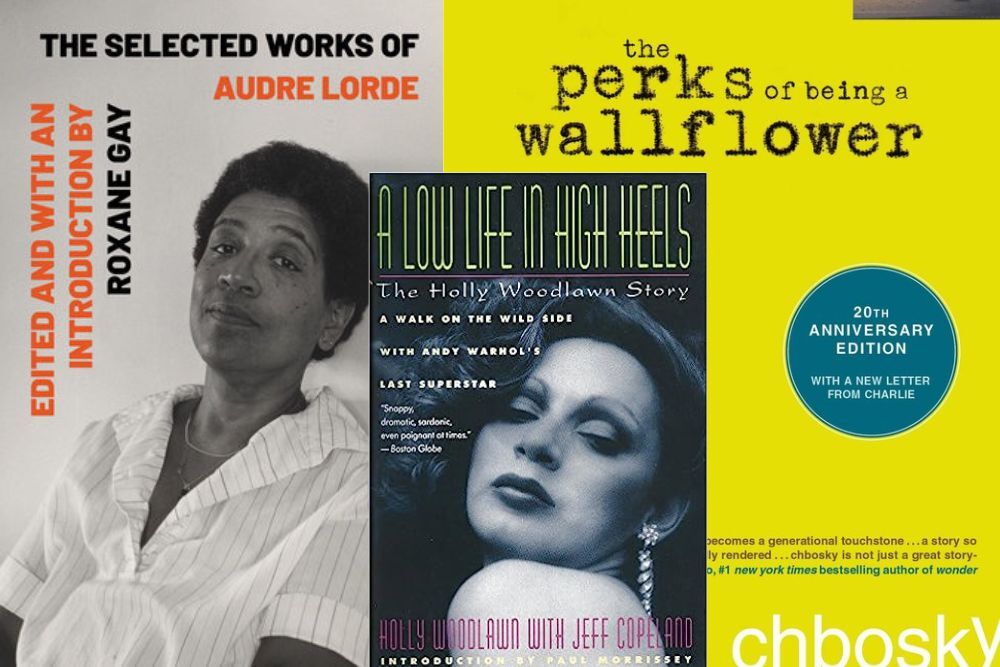





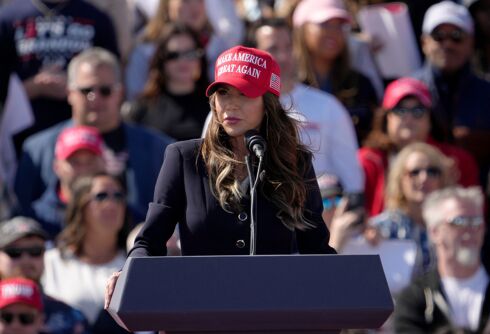


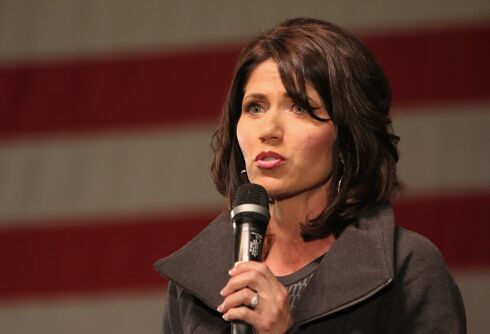
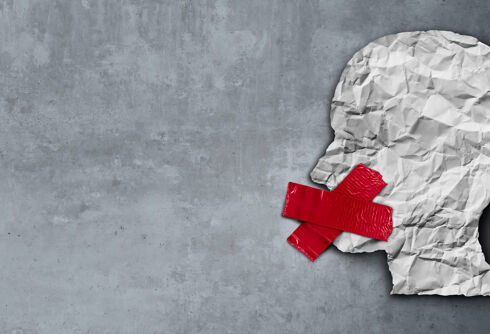
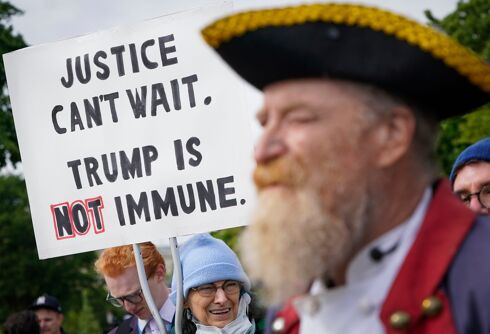


As conservatives ban LGBTQ+ stories, we asked queer adults to share essential reading for youth